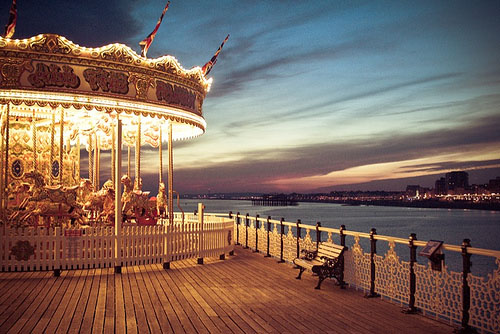ToBS R1: ‘magic realism’ vs. living in brooklyn

[Matchup #1 in Tournament of Bookshit]
Wikipedia defines magical realism as “an aesthetic style or genre of fiction in which magical elements blend with the real world.” A more specific definition favored by a former instructor was that magical realism tended to concern itself with a world that was like our own–i.e., real–with the exception of one fantastic element. Sometimes that one element has profound implications for the ostensibly real world of the story, and sometimes it doesn’t, as in Jonathan Lethem’s Fortress of Solitude, whose flight-and-invisibility granting magical ring MacGuffin/conceit is mostly polite enough to stay out of the way of the realist novely bits.
There are two main things to know about magical realism.
First, it is probably the least honest genre since realism. In “Simulacra and Simulations,” Jean Baudrillard writes that “Disneyland is presented as imaginary in order to make us believe that the rest is real, when in fact all of Los Angeles and the America surrounding it are no longer real, but of the order of the hyperreal and of simulation.” What he means–in part–is that we allow ourselves the childish fantasy of Disneyland precisely because it makes the rest of our lives seem real, adult, and reasonable, when they are really anything but. The one permissible fantastic element in magical realism is the Disneyland to that story’s America. By clearly defining the one fantastic element as unreal, by saying “the magical ring is the fantastic bit,” we implicitly argue that the rest of the story depicts reality. We exalt realism as a successful duplication of the real world. In its apparent play with the categories of real and unreal, magical realism as she is played actually asserts an uncommonly rigid division of the two. It is realism’s unwitting helpmate in manufacturing the smug confidence of the American middle and upper-middle classes in the justice, normalcy, and fundamental realness of their position in the social order. This is one of the two reasons I hate it. READ MORE >
